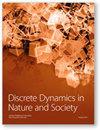企业社会责任对直播供应链运营的影响
IF 1.2
4区 数学
Q3 MATHEMATICS, INTERDISCIPLINARY APPLICATIONS
引用次数: 0
摘要
企业社会责任(CSR)作为企业经营和可持续发展的重要工具受到广泛关注。同时,激烈竞争的外部环境和不可预测的事件促使企业通过合作来防止供应链崩溃。我们研究了由主导品牌所有者、零售商和直播商组成的直播供应链(LSC)中的合作策略,其中品牌所有者通过考虑利益相关者的福利来考虑企业社会责任。我们构建了一个非合作型和三个合作型斯塔克尔伯格博弈模型,以探讨企业社会责任对合作战略和 LSC 运营的影响。结果显示如下。(1) 当品牌所有者考虑企业社会责任时,与品牌所有者不考虑企业社会责任时相比,四个模型中的 LSC 成员和系统都能获得更多利润。(2) 当流量效应较小时,品牌所有者倾向于与零售商合作;反之,品牌所有者倾向于与直播商合作。(3)大联盟 C(品牌所有者与零售商和直播平台合作)是 LSC 系统、消费者和社会的一致战略。这些发现有助于企业认识到企业社会责任与合作的重要性,从而为企业参与企业社会责任以及如何实现合作提供了参考意见。本文章由计算机程序翻译,如有差异,请以英文原文为准。
Impact of Corporate Social Responsibility on Operations of a Live-Streaming Supply Chain
Corporate social responsibility (CSR) is widely noticed as an essential tool for business operation and sustainable development. Meanwhile, the fiercely competitive external environment and unpredictable events prompt enterprises’ cooperation to prevent supply chain collapse. We investigate the cooperative strategy in a live-streaming supply chain (LSC) consisting of a dominant brand owner, a retailer, and a live streamer, where the brand owner considers CSR by considering the welfare of stakeholders. We construct one non-cooperative and three cooperative Stackelberg game models to explore the impact of CSR on cooperative strategy and LSC operations. The results show the following. (1) When the brand owner considers CSR, LSC members and systems are more profitable in the four models than when the brand owner does not consider CSR. (2) When the flow effect is small, the brand owner tends to cooperate with the retailer; otherwise, the brand owner prefers to cooperate with the live streamer. (3) The grand coalition C (the brand owner cooperates with the retailer and live streamer) is the consistent strategy for the LSC system, consumers, and society. These findings help enterprises recognize the importance of CSR and collaboration, thus further providing reference opinions on engaging in CSR and how to achieve collaboration.
求助全文
通过发布文献求助,成功后即可免费获取论文全文。
去求助
来源期刊

Discrete Dynamics in Nature and Society
综合性期刊-数学跨学科应用
CiteScore
3.00
自引率
0.00%
发文量
598
审稿时长
3 months
期刊介绍:
The main objective of Discrete Dynamics in Nature and Society is to foster links between basic and applied research relating to discrete dynamics of complex systems encountered in the natural and social sciences. The journal intends to stimulate publications directed to the analyses of computer generated solutions and chaotic in particular, correctness of numerical procedures, chaos synchronization and control, discrete optimization methods among other related topics. The journal provides a channel of communication between scientists and practitioners working in the field of complex systems analysis and will stimulate the development and use of discrete dynamical approach.
 求助内容:
求助内容: 应助结果提醒方式:
应助结果提醒方式:


